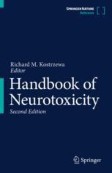Search
Search Results
-
Polymorphism in autophagy-related genes LRP1 and CAPZA1 may promote gastric mucosal atrophy
BackgroundHelicobacter pylori secretes cytotoxin-associated gene A (CagA) into the gastric epithelium, causing gastric mucosal atrophy (GMA) and...

-
Gastric Stem Cell Biology and Helicobacter pylori Infection
Helicobacter pylori colonizes the human gastric mucosa and persists lifelong. An interactive network between the bacteria and host cells shapes a...
-
Mitochondrial dysfunction: roles in skeletal muscle atrophy
Mitochondria play important roles in maintaining cellular homeostasis and skeletal muscle health, and damage to mitochondria can lead to a series of...

-
Mutations in Helicobacter pylori infected patients with chronic gastritis, intestinal type of gastric cancer and familial gastric cancer
BackgroundDevelopment of sequential changes of mucous leading to gastric cancer and familial cases of gastric cancer of intestinal type is widely...
-
Unveiling the gastric microbiota: implications for gastric carcinogenesis, immune responses, and clinical prospects
High-throughput sequencing has ushered in a paradigm shift in gastric microbiota, breaking the stereotype that the stomach is hostile to...

-
Gastric Cancer: The Microbiome Beyond Helicobacter pylori
Gastric cancer remains an important global health burden. Helicobacter pylori is the major etiological factor in gastric cancer, infecting the...
-
Clinical Pathogenesis, Molecular Mechanisms of Gastric Cancer Development
The human pathogen Helicobacter pylori is the strongest known risk factor for gastric disease and cancer, and gastric cancer remains a leading cause...
-
Helicobacter pylori Virulence Factors, Pathogenicity, and Gastric Cancer
Gastric cancer is a common cancer with a high incidence and mortality rate worldwide. Unfortunately, early-stage gastric cancer is asymptomatic....
-
Decreased expression of H19/miR-675 ameliorates muscle atrophy by regulating the IGF1R/Akt/FoxO signaling pathway
BackgroundLong non-coding RNA (lncRNA) H19 is one of the most highly expressed and conserved transcripts in mammalian development, and its functions...

-
Gastric Cancer and Helicobacter pylori
Gastric cancer is the second leading cause of cancer mortality after lung cancer. More than 90% of the tumors are adenocarcinomas. Approximately 5.5%...
-
Multiple System Atrophy
Multiple system atrophy (MSA) is a rare, rapidly progressive and fatal neurodegenerative disorder. Its main clinical features include autonomic...
-
Mechanism of Skeletal Muscle Atrophy at High Altitude: Role of Herbals and Nutraceuticals
Exposure to high altitude leads to numerous adaptive and maladaptive responses in our body which accentuates a decline in the physical performance....
-
Impact of the Helicobacter pylori Oncoprotein CagA in Gastric Carcinogenesis
Helicobacter pylori CagA is the first and only bacterial oncoprotein etiologically associated with human cancer. Upon delivery into gastric...
-
Lipoxin A4 attenuated dexamethasone-induced muscle atrophy via activation of PGC-1α/Nrf2/TFAM pathway
Prolonged dexamethasone (DEX) administration causes skeletal muscle atrophy through induction of both oxidative stress and mitochondrial dysfunction....

-
SLC26A9 deficiency causes gastric intraepithelial neoplasia in mice and aggressive gastric cancer in humans
BackgroundSolute carrier family 26 member (SLC26A9) is a Cl − uniporter with very high expression levels in the gastric mucosa. Here, we describe...

-
Mouse models of Kras activation in gastric cancer
Gastric cancer has one of the highest incidence rates and is one of the leading causes of cancer-related mortality worldwide. Sequential steps within...

-
Presence of Fusobacterium nucleatum in relation to patient survival and an acidic environment in oesophagogastric junction and gastric cancers
BackgroundFusobacterium nucleatum inhabits the oral cavity and affects the progression of gastrointestinal cancer. Our prior findings link F....

-
Autoimmune conditions and gastric cancer risk in a population-based study in the United Kingdom
BackgroundAlthough overall incidence of gastric cancer is decreasing, incidence has been increasing among young people in some Western countries....
-
Mitochondrial Function in Health and Disease: Responses to Helicobacter pylori Metabolism and Impact in Gastric Cancer Development
Mitochondria are major cellular organelles that play an essential role in metabolism, stress response, immunity, and cell fate. Mitochondria are...
-
Low prevalence of gastric intestinal metaplasia and Helicobacter pylori on surveillance upper endoscopy in Lynch syndrome
Lynch syndrome (LS) increases the risk of numerous different cancers including gastric cancer. While some current guidelines recommend empiric...
